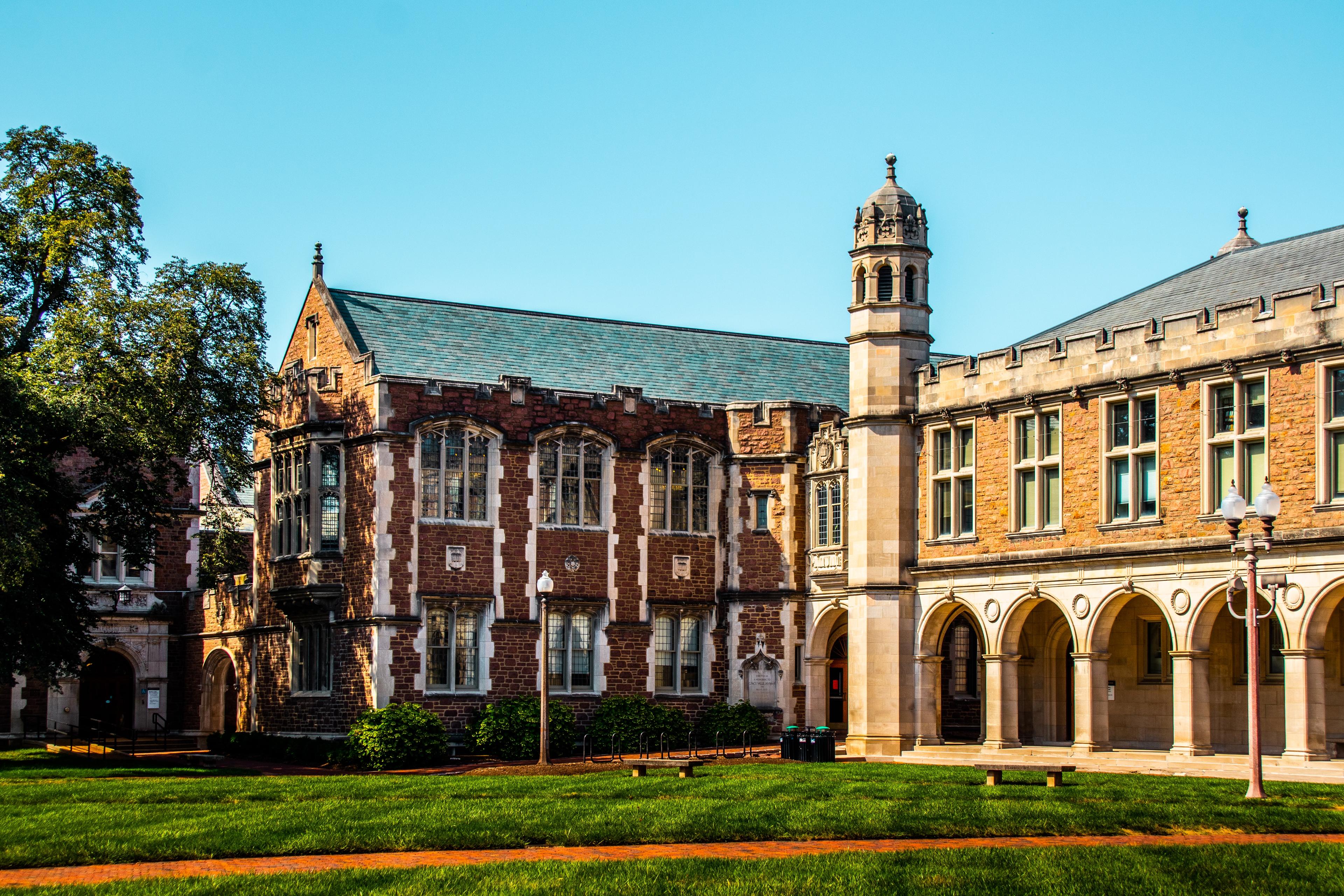Investment Banking Recruiting: Timeline & Processes for Full-Time & Summer Analysts (2025)
Discover the 2025 timeline and processes for investment banking recruiting. Learn how to navigate the steps for securing full-time and summer analyst roles.
Posted September 1, 2025

Table of Contents
Investment banking is a competitive and rewarding career path as it attracts some of the brightest minds in finance. Whether you are aiming for a summer internship or a full-time analyst position, understanding the investment banking recruiting process is essential to securing a role. In this guide, we’ll break down the investment banking recruiting timeline, the steps involved, and how to prepare for each stage, helping you stand out as a candidate.
Understanding the Investment Banking Recruiting Process
The investment banking recruiting process can vary from firm to firm but it generally follows a set timeline with similar stages. This process is highly structured and competitive, so it is important to start early, especially if you’re aiming for investment banking internships or junior summer internships.
Key Phases of the Recruiting Process
Early Insight Programs
These programs are typically for undergraduate students or those in their sophomore year and are a great way to learn more about investment banking while building relationships. They are often the first step into formal recruiting and can provide a leg up in securing a summer internship or a full-time position later on.
Application Process
The application process usually begins with submitting your cover letter, resume, and sometimes a personal statement to a banking recruitment agency or directly to the banks. You’ll need to monitor job boards for investment banking internships and full-time positions. Most banks use online applications, and firms typically only consider undergraduate students for roles in their junior year or later.
Interviews
Once your application is selected, you'll progress to the interview. It often starts with phone screen interviews followed by on-site interviews. These may include technical questions, behavioral interview preparation, and, at some banks, Superday interviews (a full day of back-to-back interviews).
Final Decision
After interviews, if you pass all stages, you may be offered a position as a summer analyst or for a full-time position post-graduation. The firm will extend job offers after completing the investment banking recruitment process.
The Investment Banking Recruiting Timeline (2025)
Timeline for Summer Analysts
Recruiting for summer internships typically starts a year in advance. Below is a clear timeline that applicants should follow:
| Timeline | Details |
|---|---|
| Sophomore Year (Early Insight Programs) | The recruiting season for summer internships often begins in the sophomore year for early insight programs. These programs help aspiring investment bankers get a feel for the industry and gain early experience. |
| Junior Year (Summer Internships) | By junior year, recruitment for summer internships starts ramping up. Applications typically open in the fall of junior year, and interviews happen during the winter months. These internships are critical, as they can often lead to a full-time job offer after graduation. |
| Rolling Basis | Many investment banking recruiters hire on a rolling basis, meaning positions are filled as applications are reviewed. Candidates must be proactive and apply early to maximize their chances. |
Timeline for Full-Time Analysts
The timeline for applying to full-time analyst programs differs from summer internships. Here's the breakdown:
| Timeline | Details |
|---|---|
| Fall of Senior Year | If you're applying for a full-time analyst program, most positions are posted in the fall of your senior year. Application deadlines usually fall in September or October, allowing graduating students to secure positions before graduation. |
| Full-Time Recruiting | The interview process for full-time positions starts after applications are submitted, typically taking place in late fall and winter. Successful candidates are usually offered positions in late winter or early spring. |
Read: Investment Banking Analyst: What They Really Earn in 2025
Timeline for MBA-Level Positions
For those aiming for MBA-level positions, here's the breakdown:
| Timeline | Details |
|---|---|
| MBA Recruiting | Recruiting for MBA-level positions typically occurs after completing the MBA program or during summer internships in the first year of MBA school. Hiring for these roles follows a rolling basis, so early networking and applications are crucial. |
Step-by-Step Breakdown of the Investment Banking Recruiting Process
1. Application Process
The first step in the investment banking recruiting process is submitting your application. Most banks and firms post opportunities on their websites or job boards. You’ll need to submit your cover letter, resume, and sometimes a personal statement to get started.
Banks typically begin reviewing applications in the fall and hire on a rolling basis. For students at non-target schools, the process can be more competitive, as these schools often don’t have the same recruitment pipelines as target schools. Applying early and making connections can help improve your chances.
2. Interview Process
After passing the initial application stage, candidates are invited to interview. Here’s what you can expect:
Phone Screen Interview- This is often the first step in an interview. A recruiter or hiring manager will call you to discuss your background, motivations, and interest in the firm. Be prepared for technical questions and behavioral questions about your experience and skills.
First Round Interviews- After passing the phone screen, you will move on to first-round interviews, which can either be in-person or virtual. These interviews typically consist of technical questions about finance, corporate finance principles, and investment banking practices.
Superday Interviews- If you make it past the first round, you may be invited to a Superday which is a day-long interview with back-to-back interviews. This is typically the final stage for candidates being considered for a summer internship or full-time job.
Read: Preparing for Success: Top 10 Questions Asked in Investment Bank Interviews
3. Behavioral and Technical Preparation
Preparing for both behavioral and technical questions is an important part of succeeding in an investment banking interview. For behavioral interview preparation, banks want to understand your motivations, leadership skills, and how you’ll fit into their team. Be ready to answer common questions like “Tell me about yourself” or “Why investment banking?” These questions give you a chance to highlight your passion for the field and show why you’re a great fit for the role.
As for technical questions, they’ll test your financial knowledge and problem-solving abilities. You might be asked about concepts like discounted cash flow (DCF), leveraged buyouts (LBOs), or mergers and acquisitions (M&A). It is important to be comfortable explaining these concepts and how they work in real-world situations. Preparing well for both types of questions will help you feel confident and ready for whatever comes your way during the interview.
4. Offer and Acceptance
Once the interviews are completed, firms typically extend offers to top candidates. If you’ve done well, you’ll likely be offered a summer internship or a full-time analyst position. These offers usually come in late winter or early spring.
After receiving an offer, you’ll typically have a few weeks to make your decision. Take the time to carefully consider the firm’s culture, the role, and the long-term opportunities before accepting. It’s important to feel confident in your choice, as this decision will set the stage for your career in investment banking.
5 Expert Tips for IB Recruitment Process
Here are 5 expert tips to help you succeed in the investment banking recruiting process.
1. Start Networking Early and Strategically
Networking is something you should do year-round, not just right before interviews. As an aspiring investment banker, your goal should be to build relationships with key people in the industry, including alumni, recruiters, and current bankers. Start early, even in freshman year, by attending informational sessions, coffee chats, and having phone calls with bankers from top firms. Focus on making meaningful connections with people who can share their previous IB experience and insights into the recruiting process. These relationships will help you understand different career paths and increase your chances of securing internships and offers. Keep track of your interactions and follow up regularly to stay top of mind.
Read: How to Network Virtually and Expand Your Investment Banking Circle Online
2. Gain Relevant Experience with Junior Summer Internships
Before landing a full-time job or a top summer internship, it is important to gain relevant experience through junior summer internships. These internships are often a stepping stone to securing a full-time analyst role at a bank. It’s not enough to have just any internship. You need one where you can show your ability to work on technical questions, manage multiple projects, and demonstrate leadership. Private equity or corporate finance roles are great options as they expose you to investment banking principles and financial modeling. Plus, showcasing your completed internships on your resume will make you more competitive in the selection process for top roles.
3. Apply Early and Be Mindful of the Rolling Basis
Many top firms hire on a rolling basis, meaning the earlier you apply, the better your chances are. Start preparing your cover letter and resume well in advance, and submit your applications as soon as recruitment opens. Investment banking recruiting is highly competitive, so staying ahead of the game is essential. Keep an eye on application deadlines, especially for early insight programs or junior summer internships. The earlier you apply, the more likely you are to secure a spot before positions fill up. Remember that interviews vary by firm, and early applicants usually get the first pick of interview times and dates.
4. Prepare Thoroughly for the Interview Process
Investment banking interviews are challenging and require strong technical knowledge and the ability to show you’re a good fit for the firm’s culture. For technical interviews, make sure you're comfortable with concepts like discounted cash flow (DCF), leveraged buyouts (LBOs), and mergers and acquisitions (M&A). But don't ignore the behavioral interview. Recruiters want to see your drive and emotional intelligence in addition to your technical skills. Be prepared to discuss your previous IB experience and explain why you're passionate about investment banking. Expect back-to-back interviews and superday interviews, so practice your responses and stay calm under pressure.
Read: How to Answer “Why This Firm?” and “Why Investment Banking?” in Interviews
5. Use Your Business School Experience for Full-Time Recruiting
If you’re already in business school, use your coursework, projects, and MBA-level experience to stand out during the full-time recruiting process. Many investment banks prefer candidates from target schools, but having a unique angle from your MBA experience can help set you apart. For MBA-level candidates, recruiting typically starts after your first year, so use the summer to secure an internship at a top firm. The transition from MBA to full-time analyst can be competitive, so make sure you have solid internship experience and a strong network to back you up during the final rounds of interviews.
The Bottom Line
Investment banking recruiting is a structured, competitive process that requires early preparation, strong networking, and a focus on gaining relevant experience. Whether you are aiming for a summer internship or a full-time position, it’s important to understand the investment banking recruitment process and plan accordingly. By starting early, preparing for interviews, and leveraging connections, you can put yourself on the path to success in one of the most rewarding career paths in finance.
Start Your Investment Banking Career with Expert Guidance
Landing a full-time or summer analyst role in investment banking isn’t just about knowing the numbers. Get ahead of the game with an expert and master the strategies top candidates use to secure their offers.
Read these next:
- Investment Banking Interview Guide: Process & Tips
- Top 15 Questions Asked in Investment Bank Interviews
- How to Keep Up with Investment Banking Company News and Impress Interviewers
- The Best MBA Programs for Investment Banking
- An Expert’s Guide to Resumes: Five Tips to Make You Stand Out
FAQs
What does a bank recruiter do?
- A bank recruiter finds and hires candidates for various roles within the bank, including screening resumes, conducting interviews, and extending job offers.
Who are the top recruiters in banking?
- Top banking recruiters include firms like Goldman Sachs, J.P. Morgan, Morgan Stanley, and recruitment agencies like Robert Half and Selby Jennings.
What is the hardest bank to get hired at?
- The hardest banks to get hired at are Goldman Sachs, J.P. Morgan, Morgan Stanley, and other bulge-bracket banks, known for their selective hiring processes.
How do I get into banking with no experience?
- To get into banking with no experience, start with internships in related fields, build your network, attend early insight programs, and apply for entry-level roles to gain relevant experience.










